Abstract
The study was designed to describe the information needs and the information-seeking behavior of rural physicians. Data were collected from twelve rural physicians in Central Florida through face-to-face interviews and observation. From a review of 144 patient charts, 48 produced unique, factual patient care questions. Seventy-five percent of the questions were on treatment, 14.7% on diagnosis, 8.3% on etiology, and 2.1% on the psychological aspects of disease. All physicians in the survey relied on colleagues; eleven attended medical meetings; nine subscribed to medical journals, and nine owned medical textbooks. Of the physicians with access to a hospital library, two used the library frequently while ten seldom used the library. Lack of time due to heavy workloads was an obstacle to systematic information retrieval. Rural physicians need immediate access to high-quality, synthesized answers to specific patient care questions at the time of patient contact. Information must be concise and up-to-date, although not necessarily state-of-the-art. A database composed of selected textbooks with integrated keyword access would meet the criteria. In addition, a computerized expert system focused on rural physicians' information needs is a possible remedy for the existing problem.
Full text
PDF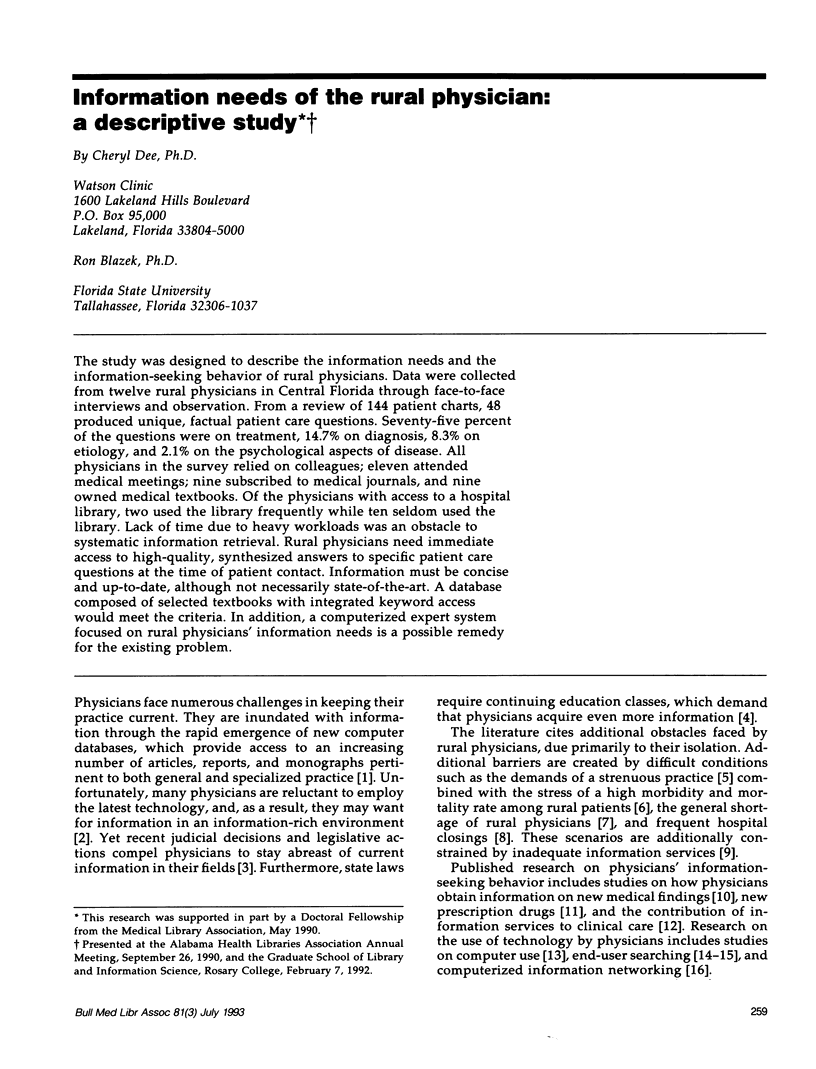
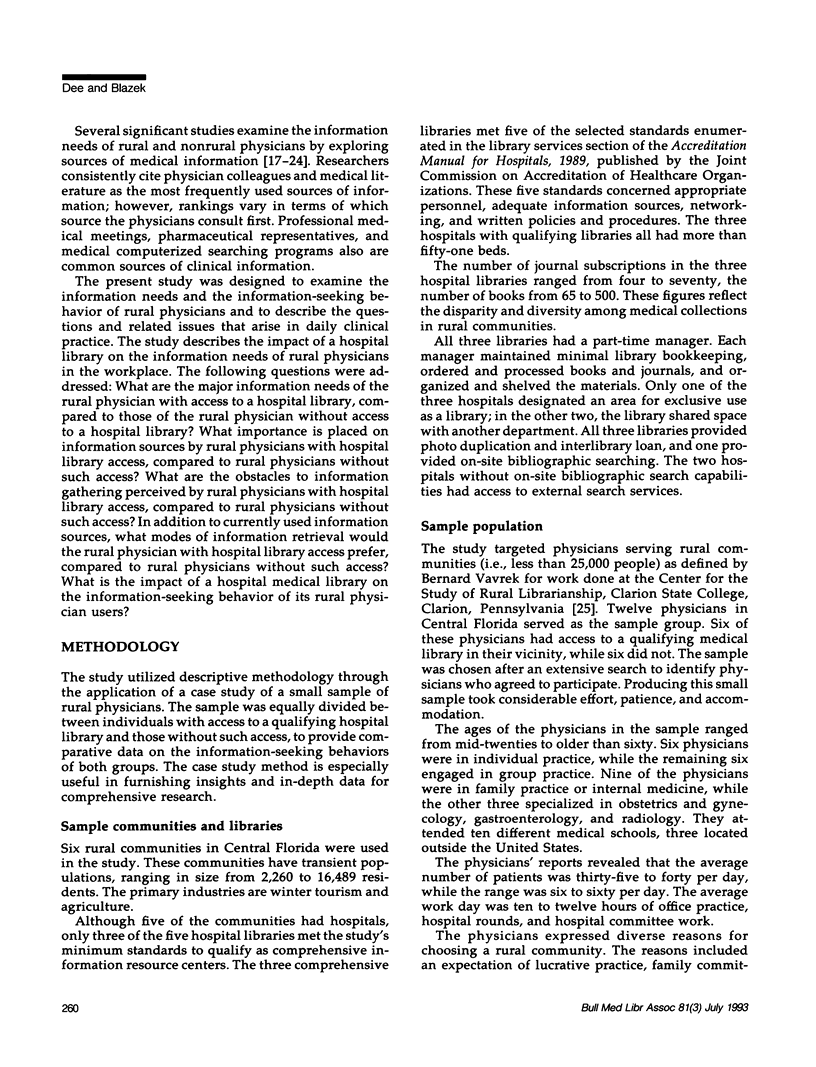
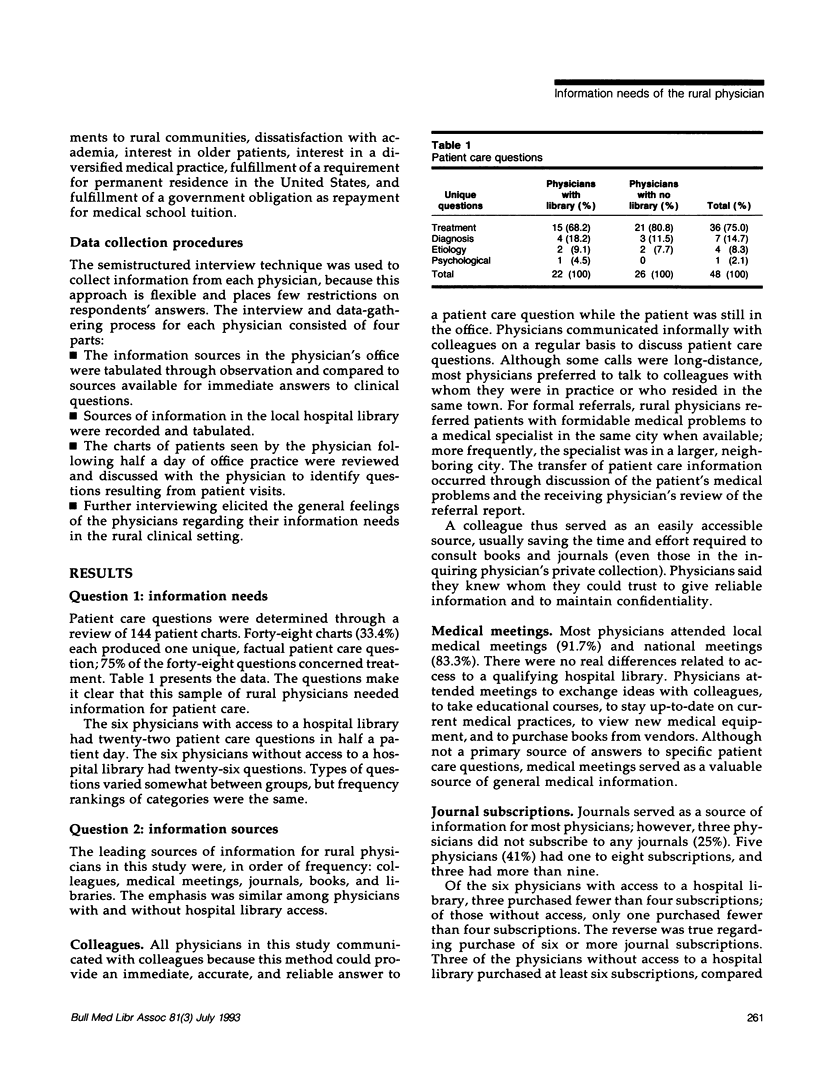
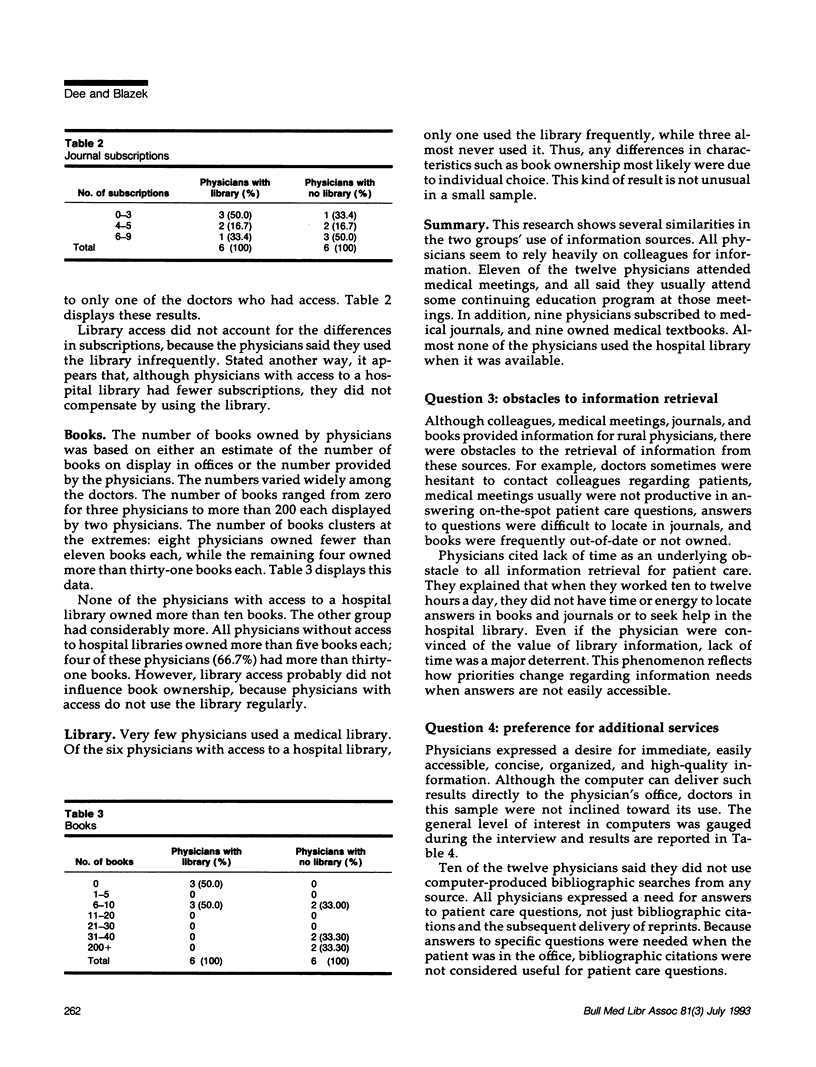
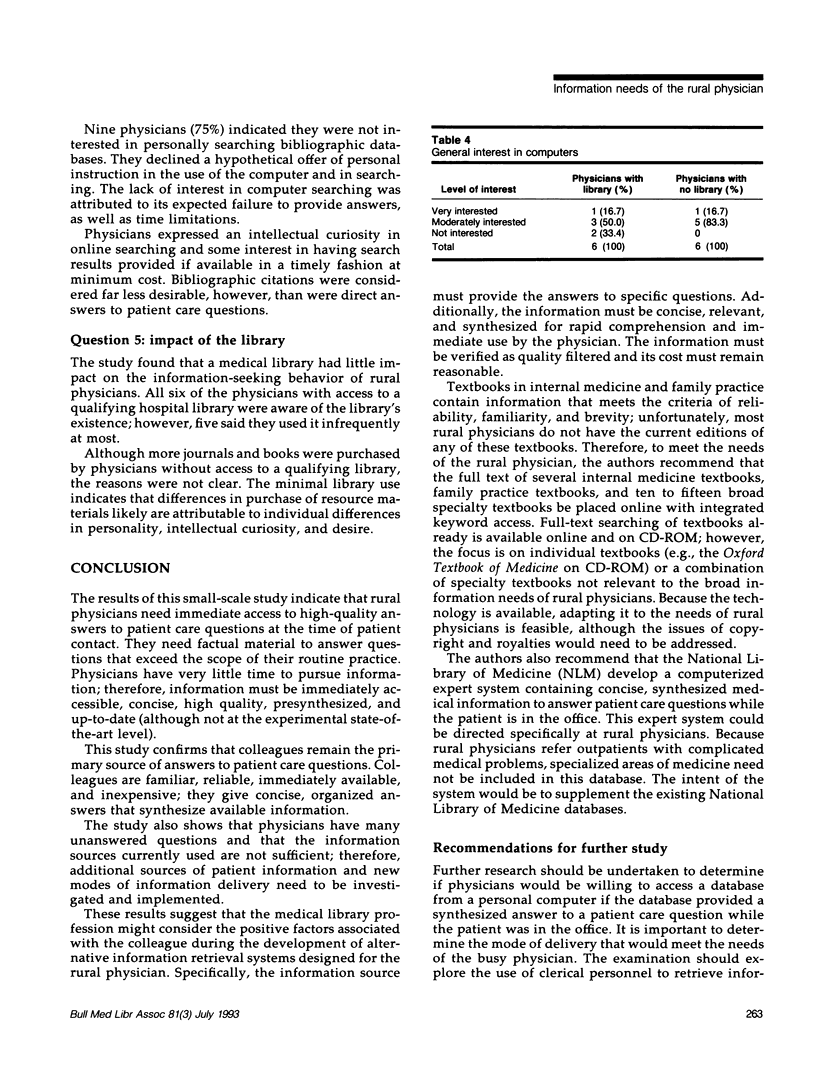
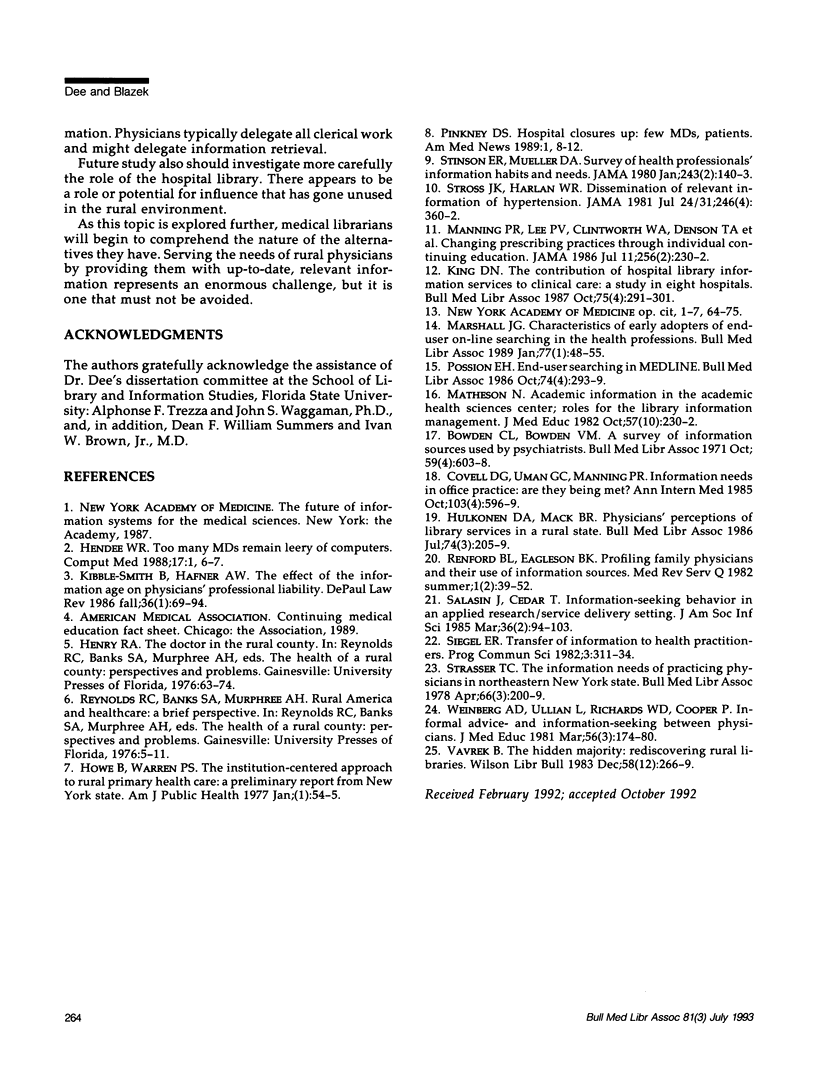
Selected References
These references are in PubMed. This may not be the complete list of references from this article.
- Bowden C. L., Bowden V. M. A survey of information sources used by psychiatrists. Bull Med Libr Assoc. 1971 Oct;59(4):603–608. [PMC free article] [PubMed] [Google Scholar]
- Covell D. G., Uman G. C., Manning P. R. Information needs in office practice: are they being met? Ann Intern Med. 1985 Oct;103(4):596–599. doi: 10.7326/0003-4819-103-4-596. [DOI] [PubMed] [Google Scholar]
- Hulkonen D. A., Mack B. R. Physicians' perceptions of library services in a rural state. Bull Med Libr Assoc. 1986 Jul;74(3):205–209. [PMC free article] [PubMed] [Google Scholar]
- King D. N. The contribution of hospital library information services to clinical care: a study in eight hospitals. Bull Med Libr Assoc. 1987 Oct;75(4):291–301. [PMC free article] [PubMed] [Google Scholar]
- Manning P. R., Lee P. V., Clintworth W. A., Denson T. A., Oppenheimer P. R., Gilman N. J. Changing prescribing practices through individual continuing education. JAMA. 1986 Jul 11;256(2):230–232. [PubMed] [Google Scholar]
- Marshall J. G. Characteristics of early adopters of end-user online searching in the health professions. Bull Med Libr Assoc. 1989 Jan;77(1):48–55. [PMC free article] [PubMed] [Google Scholar]
- Poisson E. H. End-user searching in medicine. Bull Med Libr Assoc. 1986 Oct;74(4):293–299. [PMC free article] [PubMed] [Google Scholar]
- Salasin J., Cedar T. Information-seeking behavior in an applied research/service delivery setting. J Am Soc Inf Sci. 1985 Mar;36(2):94–102. doi: 10.1002/asi.4630360204. [DOI] [PubMed] [Google Scholar]
- Stinson E. R., Mueller D. A. Survey of health professionals' information habits and needs. Conducted through personal interviews. JAMA. 1980 Jan 11;243(2):140–143. [PubMed] [Google Scholar]
- Strasser T. C. The information needs of practicing physicians in northeastern New York State. Bull Med Libr Assoc. 1978 Apr;66(2):200–209. [PMC free article] [PubMed] [Google Scholar]
- Stross J. K., Harlan W. R. Dissemination of relevant information on hypertension. JAMA. 1981 Jul 24;246(4):360–362. [PubMed] [Google Scholar]
- Weinberg A. D., Ullian L., Richards W. D., Cooper P. Informal advice- and information-seeking between physicians. J Med Educ. 1981 Mar;56(3):174–180. doi: 10.1097/00001888-198103000-00003. [DOI] [PubMed] [Google Scholar]


